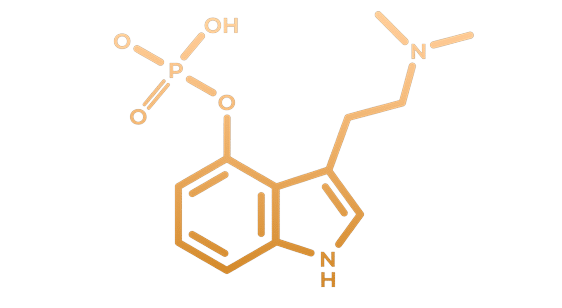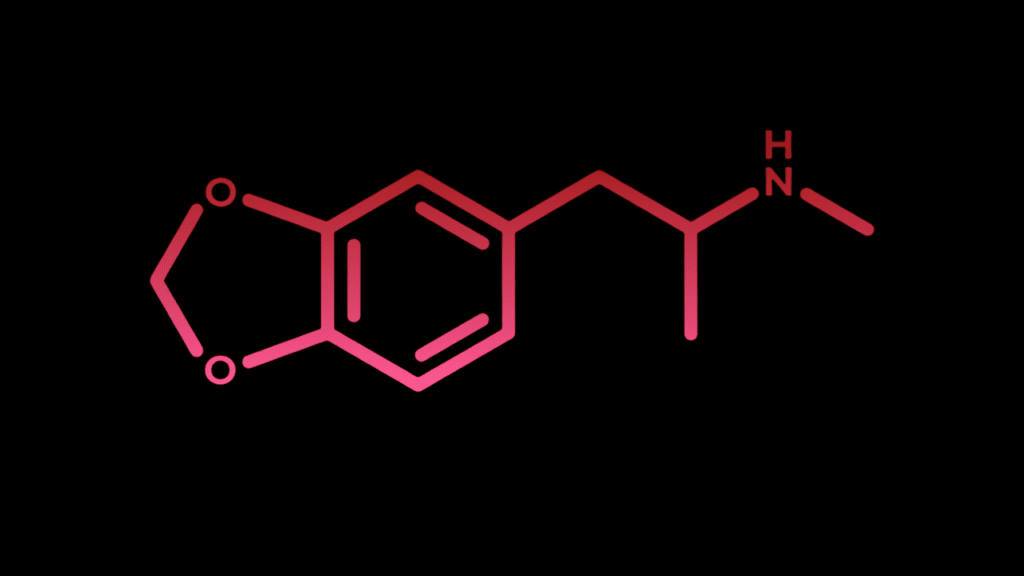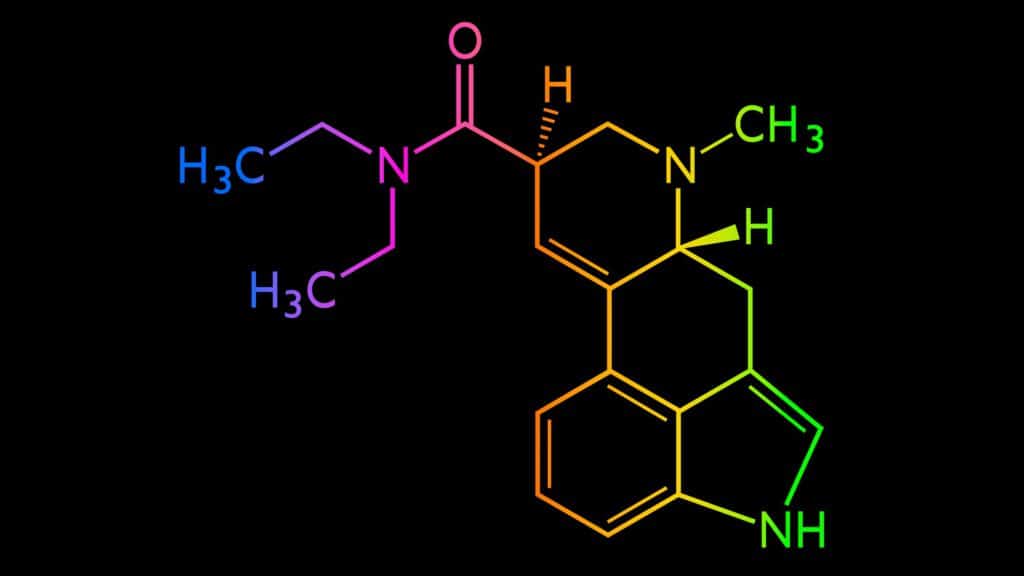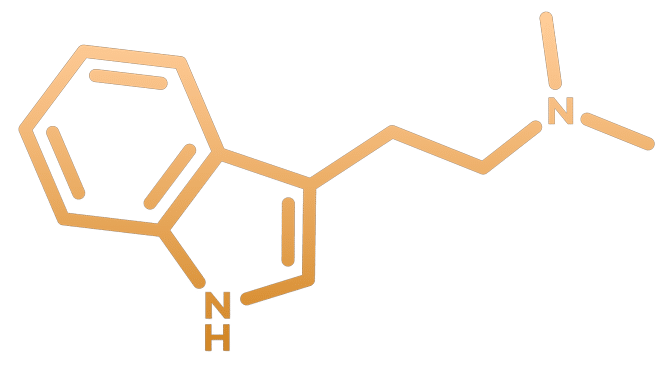Therapy while tripping
Psychedelic therapy is becoming more and more popular Triptherapie This form of therapy involves the use of psychedelic substances such as ayahuasca, DMT, LSD, MDMA, or psilocybin from mushrooms/magic truffles. After ingesting these substances, perception changes, and the journey (trip) within begins under the guidance of a professional. Because the brain temporarily functions differently, results are generally much better than those achieved with conventional therapy. Incidentally, these psychedelic sessions are even more effective if a preparatory plan is drawn up beforehand.
Each psychedelic has a different effect and is used in different areas. For example, psilocybin is often used for depression, and MDMA offers good prospects for treating PTSD and anxiety. In this article, we explain which psychedelics are legal to use in the Netherlands and what alternatives exist for some well-known psychedelics that are illegal.
Therapy with psychedelics
Psychedelics are also known as plant medicines. Plant medicines have been used for thousands of years by various indigenous peoples around the world for therapeutic, spiritual, and healing purposes. This goes back even further than the scientific discovery of psychedelic substances such as ayahuasca, LSD, and psilocybin in the twentieth century. The earliest known plant medicines were likely magic mushrooms (psilocybin), cannabis, and hemp. In South America, ayahuasca was traditionally used by indigenous shamans as a medicine and as part of spiritual rituals. Indigenous tribes in North America also used mushrooms and peyote to connect with spiritual forces.
Through scientific research and the discovery of new substances in the laboratory, there is increasing awareness of the healing potential of these old classic psychedelics and new psychedelic substances such as MDMA and various derivatives. Although research shows promising results, many psychedelic substances are illegal, and psychedelic therapy is not considered a medical treatment in 2025.
Preparing for psychedelic therapy
- Intake and neurotransmitter test: A psychedelic treatment begins with completing an intake form and a neurotransmitter test. This helps identify your current state of mind and any contraindications.
- AdviceBased on the intake, advice is given on nutrition, supplements, and exercise. This is crucial because a healthy body contributes to better mental health and improves the effects and effectiveness of psychedelics.
- MonitoringAfter following the recommendations, there is a 2-3 week period during which progress is monitored. This helps to make any necessary adjustments to the plan.
- Final preparationThe last few days before the session are crucial. These are where you'll find additional tips, such as recommended reading or videos that can help with mental preparation.
- Information about the session: In the days before the psychedelic session, the participant will receive information about what to expect, including dietary advice before and after the session.
- Intentions and goalsIt's important to think about your intentions and goals for the session beforehand. This helps maintain focus throughout the experience. These intentions are discussed with your chosen therapist during the week leading up to the session and on the day of the therapy itself.
Post-psychedelic session integration
Individual therapy, duo session or ceremony?
Psychedelic therapy can be used in various ways. It's becoming increasingly common for couples to book a duo session for relationship therapy or to simultaneously embark on personal growth. However, most people opt for individual sessions if the psychedelic session has a therapeutic nature. It's also possible to participate in group psychedelic ceremonies, such as a truffle ceremony or an MDMA group session.
When making a choice, it is important to consider what your personal preference is.
More information about the group sessions and ceremonies:
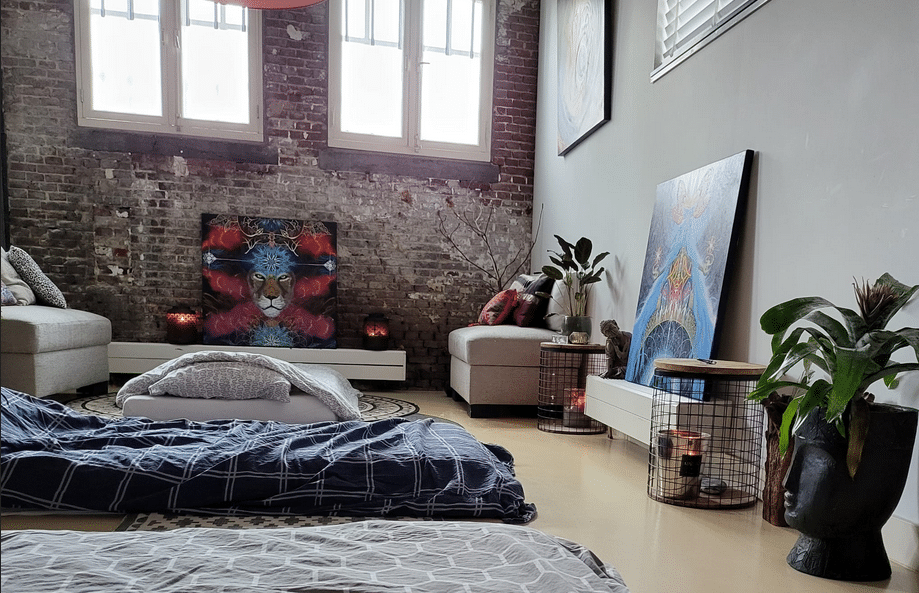
Psychedelics with therapeutic value
There are many substances that fall under the category of psychedelic drugs, and there are too many to list them all. Some psychedelics are considered more of a party drug, while others have significant potential as therapeutic tools in psychedelic therapy. In our overview, we list the most potent and more common substances used in psychedelic therapy.
Psilocybin therapy
Our psilocybin sessions are based on magic truffles, a type of magic mushroom (magic mushrooms). This is the only way we can legally offer these sessions in the Netherlands. These sessions are therefore sometimes called truffle session or truffle therapy They're all different names with the same meaning. Psilocybin is the substance that, after conversion to psilocin, produces the effects of this psychedelic. Psilocybin is primarily used for depression, addiction, and social anxiety. Psilocybin is a multi-purpose drug because it can also be used for trauma and PTSD, provided the preparation is in order. More and more people are choosing psilocybin to experience creativity and spirituality. Another advantage is that during psilocybin sessions, multiple dosages can be chosen, from microdoses to heroic doses, where visual hallucinations and other effects vary from almost none to very strong. More information:
MDMA therapy
MDMA therapy is primarily used for PTSD and trauma. MDMA sessions involve few to no visual hallucinations but generally induce feelings of euphoria and empathy, while allowing for open discussion of past negative experiences. An MDMA session is considered a significant accelerator of exposure therapy. MDMA sessions in the Netherlands can only take place if the client possesses MDMA or an MDMA analog.
LSD therapy
During LSD sessions, we use a legal LSD analog that is converted into regular LSD by the body after ingestion. This allows us to conduct LSD sessions legally. LSD sessions last much longer than any other psychedelic session, and therefore we recommend them only for those with some experience with the effects of other hallucinogenic psychedelics and who desire the long-lasting effects. The effects of an LSD session are primarily used in the treatment of addiction, creativity, and, to a lesser extent, depression and social anxiety.
Hippie flip session
For those who would benefit from a more intense session with magic truffles or psilocybin, anxiety before a trip can sometimes get in the way. By adding MDMA to psilocybin, the anti-anxiety effect of MDMA can help make the experience more pleasant. This combination of psychedelics is called the "hippie flip" and can positively influence the emotional experience and level of surrender during the psychedelic session. Small-scale research has previously shown that the combination of MDMA and psilocybin can lead to an increased chance of self-compassion, feelings of love and gratitude, and a reduced chance of negative experiences or "bad trips." This makes the hippie flip an interesting option for those who would struggle with a regular psilocybin session.
Wizardflip session
Another psychedelic combination that has become increasingly popular recently is the Wizard Flip. This combination consists of LSD and psilocybin. Clients who frequently choose this combination often want a strong visual trip, but without the long-lasting peak effects often associated with LSD trips. People with Obsessive-Compulsive Disorder (OCD) often choose a Wizard Flip to combine the therapeutic benefits of both psilocybin and LSD.
DMT therapy and ayahuasca
Ayahuasca is a well-known plant medicine from the Amazon and contains DMT. Due to the presence of DMT, ayahuasca is illegal in the Netherlands. For those who wish to utilize the healing and spiritual properties of DMT or ayahuasca, we offer alternatives in the form of higher-dose psilocybin sessions, psilohuasca, or psiloflora.
Psiloflora is a combination of psilocybin and the mild MAO-inhibiting passion flower, making it a form of psilohuasca. The mild MAO-inhibiting and sedative properties produce a stronger and longer introspective journey than psilocybin alone. Due to the prolonged duration and enhanced trip, psiloflora is only recommended for those who have previously experienced psychedelic experiences. Psiloflora can be used for the same reasons as psilocybin, but the emphasis is slightly more on inducing a spiritual experience.
Advice and registration
Given the wide range of psychedelic therapy options, making a choice can be difficult. Furthermore, there are contraindications to psychedelic use that we want to verify with clients who sign up for our services. To help you make a sound and safe choice, we ask you to complete the intake form, which can be found via the button below. The intake also provides us with information that serves as the basis for the advice we give in preparation for the psychedelic session. An important part of the preparation is improving your neurochemistry (neurotransmitters) to facilitate a better session and a better mood. Begin your Triptherapie experience now and start the intake!
Frequently Asked Questions
Frequently Asked Questions about Psychedelic Therapy
Find answers to frequently asked questions about psychedelics and psychedelic therapies here. Don't see the answer? You can also ask your questions to our chatbot, Trippy, or contact us.
Medical psychedelic therapy is an innovative and currently experimental treatment method aimed at alleviating mental health conditions through the use of psychedelic substances. During this therapy, the psychedelics are taken in a controlled environment under the guidance of a therapist. After the experience, when the effects of the substances have worn off, the therapist conducts an "integrative conversation" with the client. These conversations help them process the experiences and insights gained and integrate the new perspectives into their daily lives.
Psychedelic therapy, as we do at Triptherapie, can have various goals but should not be considered or even be called medical treatment. However, the alleviation of psychological symptoms is often cited as a byproduct of Triptherapie. Our therapy may be used to contribute to increased self-awareness, improved mental health, and the development of new perspectives on life. This can help with depression, addiction, anxiety, and can be used for personal growth.
Potential benefits of psychedelic therapy include reducing symptoms of mental health issues like anxiety and depression, which can lead to improved mood and a greater sense of happiness and well-being. It also offers greater insight into oneself, which can result in an improved quality of life. Increased neuroplasticity allows the brain to change and heal more easily, which is especially beneficial for clients who don't respond to traditional treatments.
Currently, health insurers do not reimburse psychedelic therapy. For now, psychedelic therapy is not yet recognized as a medical treatment and is considered more like coaching under the influence of a stimulant. We expect that psychedelic therapy will not be partially reimbursed until 2026/2027, under certain conditions. By then, more research will have been completed, and health insurers may be less hesitant.
In the Netherlands, many psychedelic substances are listed under the Opium Act, making them illegally available. This can pose a challenge for those interested in psychedelic therapy. Fortunately, we can offer legal therapies using psychedelic substances that are not regulated by the Opium Act. A common option is magic truffles, which contain the same active ingredients as prohibited magic mushrooms, but are legal and can make a valuable contribution to therapeutic sessions. For MDMA and LSD sessions, we can use legal analogues.
Based on scientific research, psychedelic therapy has been shown to have a positive effect on various mental health conditions, including depression, and may be particularly effective for treatment-resistant depression. It also offers potential for treating anxiety disorders, including panic disorder, social anxiety disorder, and obsessive-compulsive disorder (OCD). Post-traumatic stress disorder (PTSD) can also be addressed with psychedelic therapies. Furthermore, other studies show that addictions to alcohol, nicotine, cocaine, and opioids can be reduced by psilocybin therapy. Moreover, positive results have been reported for treating cluster headaches and existential anxiety, highlighting the versatility and potential of psychedelic therapy.
The risks of psychedelics include psychological reactions such as anxiety, panic, paranoia, and confusion, as well as physical reactions like nausea, vomiting, headaches, and dizziness. Furthermore, the long-term effects are unclear. There are also dangerous interactions with medications, so a proper intake procedure is important!
